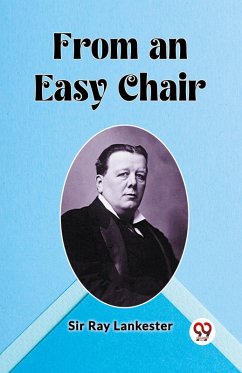Nicht lieferbar

From the Easy Chair (Esprios Classics)
Versandkostenfrei!
Nicht lieferbar
George William Curtis (1824 -1892) was an American writer and public speaker, born in Providence, Rhode Island, of New Englander ancestry. A Republican, he spoke in favor of African-American equality and civil rights. Curtis returned from Europe in 1850, attractive, accomplished, and ambitious for literary distinction. He settled on Staten Island and instantly plunged into the whirl of life in New York, obtained a post on the Tribune, became a popular lecturer, started work on Nile Notes of a Howadji (1851), and became a favorite in society. He wrote for Putnam's Magazine which he helped Georg...
George William Curtis (1824 -1892) was an American writer and public speaker, born in Providence, Rhode Island, of New Englander ancestry. A Republican, he spoke in favor of African-American equality and civil rights. Curtis returned from Europe in 1850, attractive, accomplished, and ambitious for literary distinction. He settled on Staten Island and instantly plunged into the whirl of life in New York, obtained a post on the Tribune, became a popular lecturer, started work on Nile Notes of a Howadji (1851), and became a favorite in society. He wrote for Putnam's Magazine which he helped George Palmer Putnam to found. He became an associate editor along with Parke Godwin and managing editor Charles Frederick Briggs; the three also collaborated on a gift book called The Homes of American Authors (1853).














